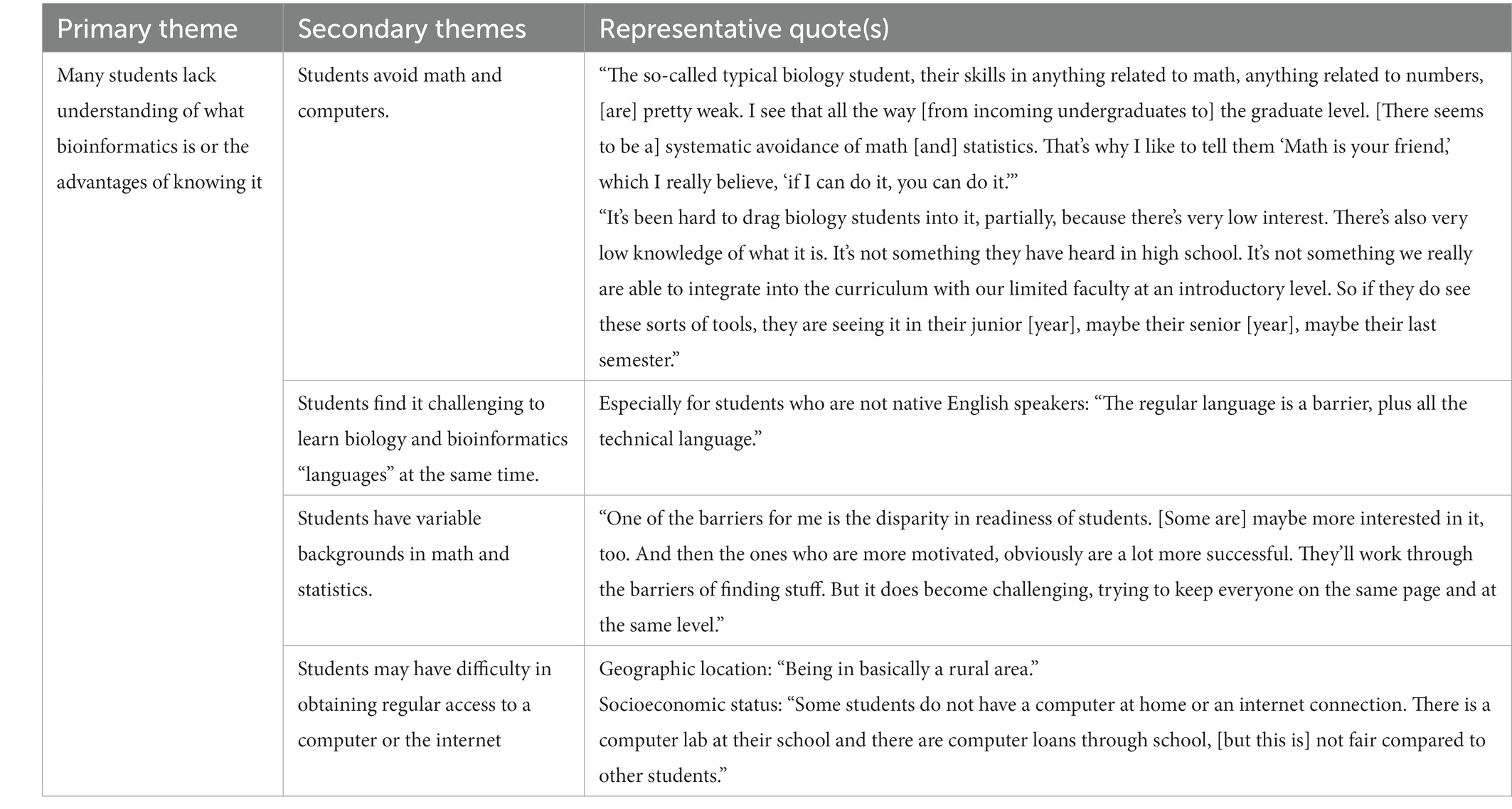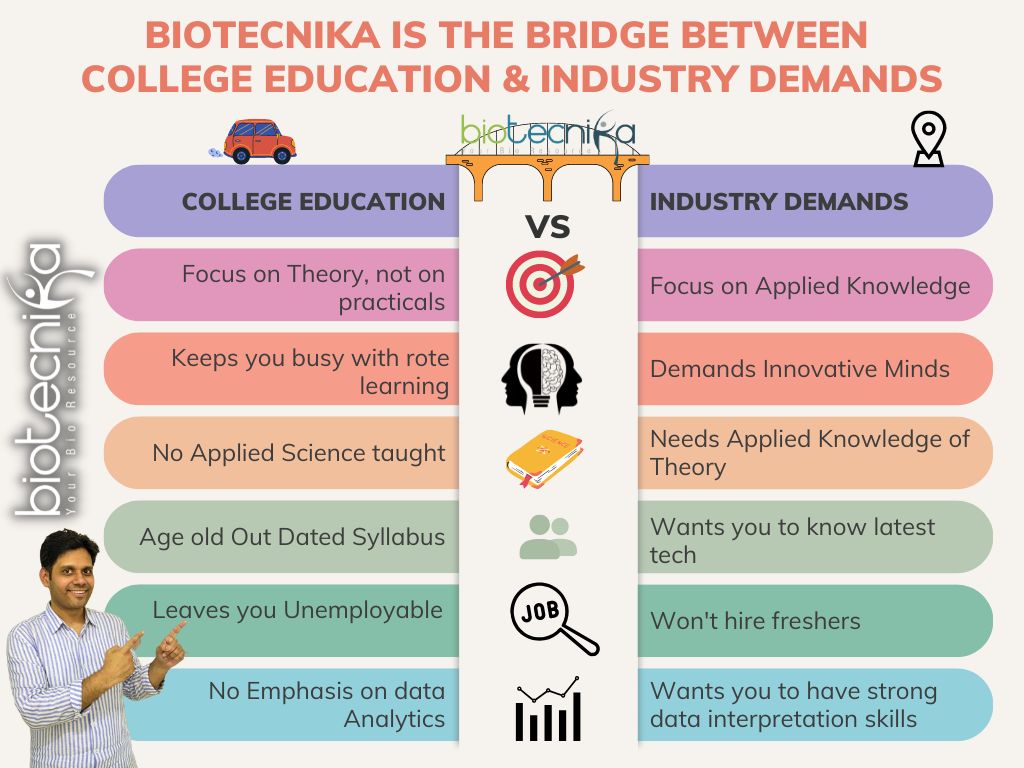Bioinformatics Tutor - Questions
Bioinformatics Tutor - Questions
Blog Article
The Best Strategy To Use For Bioinformatics Tutor
Table of ContentsThe Only Guide for Bioinformatics TutorTop Guidelines Of Bioinformatics TutorThings about Bioinformatics Tutor6 Simple Techniques For Bioinformatics TutorBioinformatics Tutor for Dummies
Of the total amount individuals associated with the training, 80% were students from public college organizations, while the staying 20% came from personal establishments. To receive a certificate of engagement, trainees were required to attend a minimum of 90% of the overall training hours. As a result of this demand, an outstanding 95% of the participants successfully acquired their certifications, having not only fulfilled the minimum attendance standards however additionally completed all appointed activities throughout the training.
During the elevation of the COVID-19 pandemic, specifically in between June and August 2020, the project team was tasked with arranging specialized training in bioinformatics. This training was especially focused on students from the research study group Center for Study in Applied Computing at the Federal University of Pará (UFRA) The adaptation to remote knowing systems due to the pandemic created an opportunity to discover new training methods and digital devices that boosted both reach and efficiency.
This course was developed to offer an accessible yet detailed review of Artificial Intelligence strategies, specifically as used in bioinformatics (Bioinformatics Tutor). This virtual format made it possible for involvement from students throughout Brazil, many of whom could not have had the opportunity to participate in in-person sessions.
The Ultimate Guide To Bioinformatics Tutor
Approximately 50% of the complete training hours were devoted to functional activities where pupils constructed smart versions and applications in an array of clinical domains, including genetics, molecular biology, and ecological data analysis. These systems allowed students to involve in real-time information control, model training, and algorithm testing.
Sixty of them were associated with different higher education and learning organizations in the state of Pará, while the staying twenty came from organizations situated in 5 other Brazilian states. By introducing Artificial Intelligence in a sensible and relevant context, the campaign offered to link the void between concept and real-world application, offering students with a strong foundation for future research or work in the field.
The training initiative developed part of a wider scholastic outreach effort understood as the Bioinformatics when traveling project. This task has, for many years, introduced loads of pupils to the globe of bioinformatics and computational biology. The occasions held under this umbrella effort have actually occurred across numerous areas and years, as summed up in websites Table 1 (List of occasions, places, years, and overall numbers of trainees and instructors)
Numerous of these teams, initially brought together by their engagement in training events, have actually because gone on to generate independent scientific research in collaboration with neighborhood academic organizations. The training not only fostered scientific thinking within the context of bioinformatics yet also stimulated joint partnerships that prolonged past the training environment.
Not known Factual Statements About Bioinformatics Tutor
The exact same group, omitting IH and RR, also acted as tutors for the sensible training components. Funding for the task was supplied through the give 88887.200562/ 2018-00 from CAPES.
The Federal College of Pará's Workplace of Research (PROPESP/UFPA) likewise supplied financial assistance, especially for the manufacturing of the last manuscript. The writers state no monetary or industrial disputes of passion that might have influenced the study. All interpretations and point of views expressed in this short article are entirely those of the authors and do not always mirror those of their particular establishments, the publisher, editors, or reviewers entailed in the magazine procedure.

Not known Details About Bioinformatics Tutor
From a pedagogical perspective, the teaching strategy made use of in the training was intentionally interactive. Classes were performed in a way that urged student involvement and conversation, exceeding memorizing memorization to check out exactly how ideas are developed, used in life, and examined in academic setups. The instructional approach focused on supporting both solid and having a hard time students, providing customized support, and building self-confidence through continual mentorship and persistence.

Each team, containing roughly 36 individuals, was supported by 3 mentors-- the majority of whom were postdoctoral scientists with customized knowledge. These coaches not just assisted create the group jobs yet likewise facilitated their execution, making sure that each study inquiry was both appropriate and properly tough. The objective was to offer a biologically reasonable context that participants might discover through flexible objectives and access to curated datasets.
For added insights right into the approach and outcomes of this project-based understanding technique, viewers are guided to S1 Text, which consists of thorough summaries of the instructional structure, examination techniques, and project motifs made use of in the training sessions.
Some Known Incorrect Statements About Bioinformatics Tutor
Of the overall participants involved in the training, 80% were pupils from public higher education and learning institutions, while the remaining 20% came from personal organizations. To certify for a certification of participation, students were needed to attend at the very least 90% of the complete training hours. Significantly, beyond the students that enlisted in the training sessions, seven experienced teachers participated in delivering the training courses, while three committed research study professors collaborated the total training process. Around 50% of the complete training hours were committed to practical activities where pupils best site built intelligent designs and applications in an array of scientific domain names, consisting of genes, molecular biology, and ecological data evaluation. The training not only fostered scientific reasoning within the context of bioinformatics however likewise triggered collaborative relationships that extended beyond the training atmosphere.
Report this page